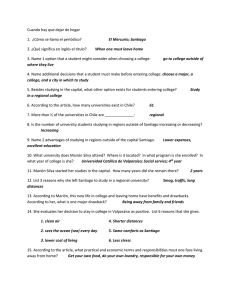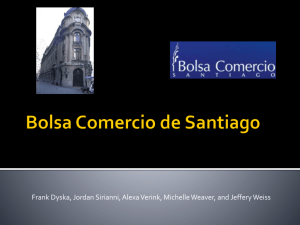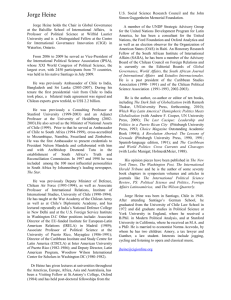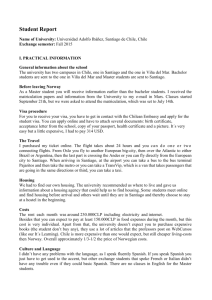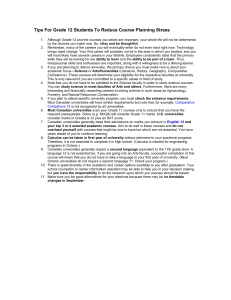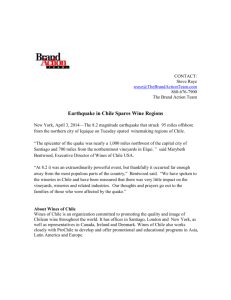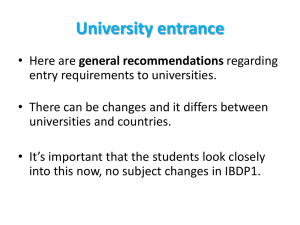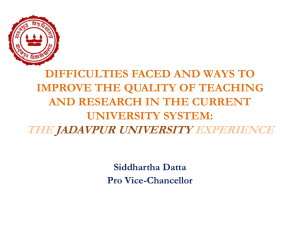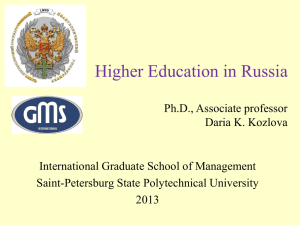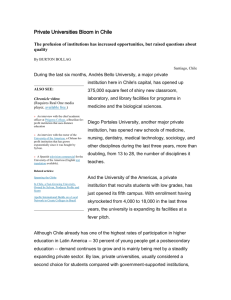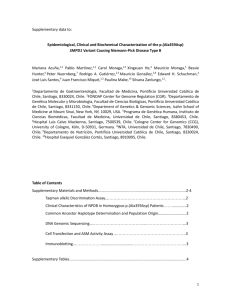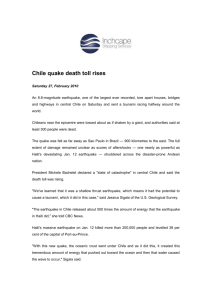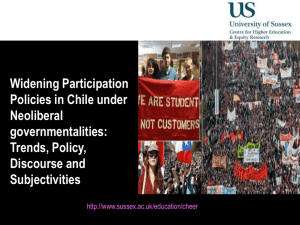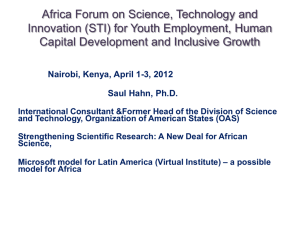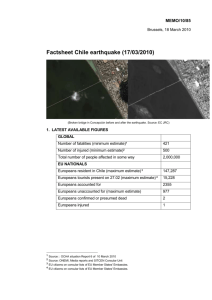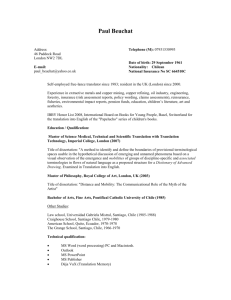University of Santiago, Chile—Ubaldo Zuniga
advertisement
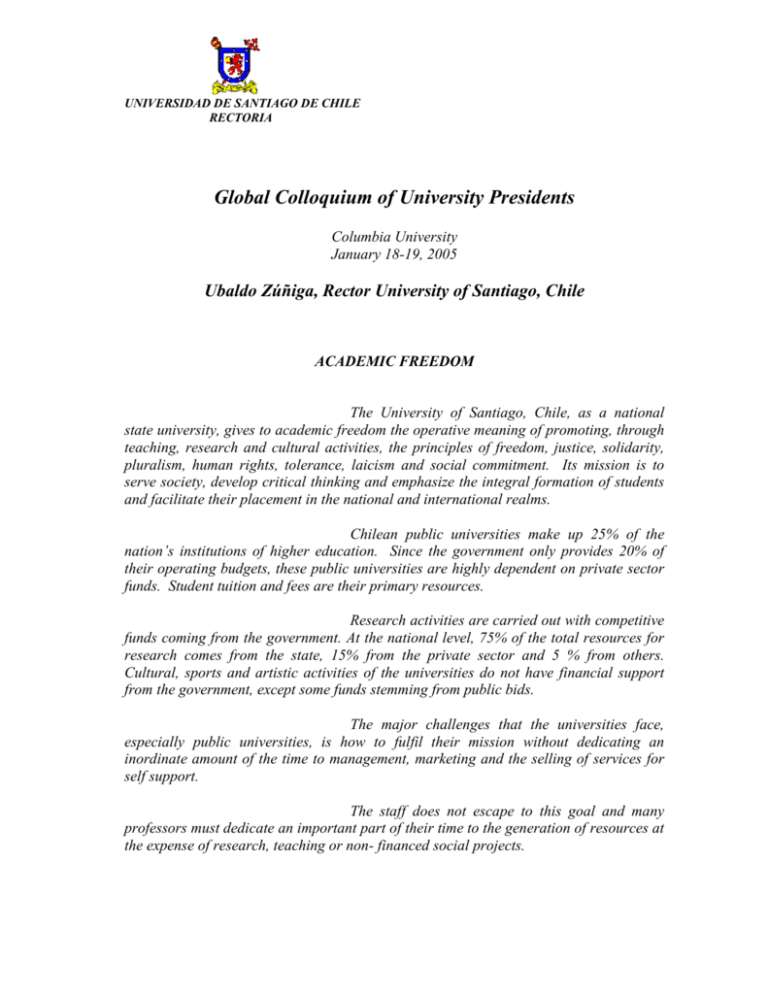
UNIVERSIDAD DE SANTIAGO DE CHILE RECTORIA Global Colloquium of University Presidents Columbia University January 18-19, 2005 Ubaldo Zúñiga, Rector University of Santiago, Chile ACADEMIC FREEDOM The University of Santiago, Chile, as a national state university, gives to academic freedom the operative meaning of promoting, through teaching, research and cultural activities, the principles of freedom, justice, solidarity, pluralism, human rights, tolerance, laicism and social commitment. Its mission is to serve society, develop critical thinking and emphasize the integral formation of students and facilitate their placement in the national and international realms. Chilean public universities make up 25% of the nation’s institutions of higher education. Since the government only provides 20% of their operating budgets, these public universities are highly dependent on private sector funds. Student tuition and fees are their primary resources. Research activities are carried out with competitive funds coming from the government. At the national level, 75% of the total resources for research comes from the state, 15% from the private sector and 5 % from others. Cultural, sports and artistic activities of the universities do not have financial support from the government, except some funds stemming from public bids. The major challenges that the universities face, especially public universities, is how to fulfil their mission without dedicating an inordinate amount of the time to management, marketing and the selling of services for self support. The staff does not escape to this goal and many professors must dedicate an important part of their time to the generation of resources at the expense of research, teaching or non- financed social projects. In sum, it is possible at the University of Santiago, Chile, as well as at other Chilean universities to speak about and practice academic freedom to a full extent. But there are important limitations and restrictions especially for public universities that obstruct such a fundamental university value. Hypothetical situation Considering the above mentioned situation, my recommendation to a university which must respond to the hypothetical challenge would be the following:: “ Professor Y has informed the chairperson of your Chemistry Department that the X Corporation is prepared to pay for the renovation of the entire chemistry lab (a $40 million renovation), provided that the University agrees that a quarter of the lab under the direction of professor Y is allocated to proprietary and confidential research for the X Corporation. The chairperson of the Chemistry Department requests your advice on how to respond”. How to respond: We do not have financial support for the renovation of the entire chemistry lab, then. If only a quarter of the lab will be allocated to proprietary and confidential research for the X Corporation, we can agree with that but: 1.- Professor Y should sign an agreement with the chairperson. Academic freedom should be conditioned by a set of ad-hoc regulations mutually beneficial for both parties concerned. 2.- The allocation must be for a limited number of years. We need labs for a number of other projects and activities and it is not possible to become involved with only one or two Corporations for an indefinite long time.
